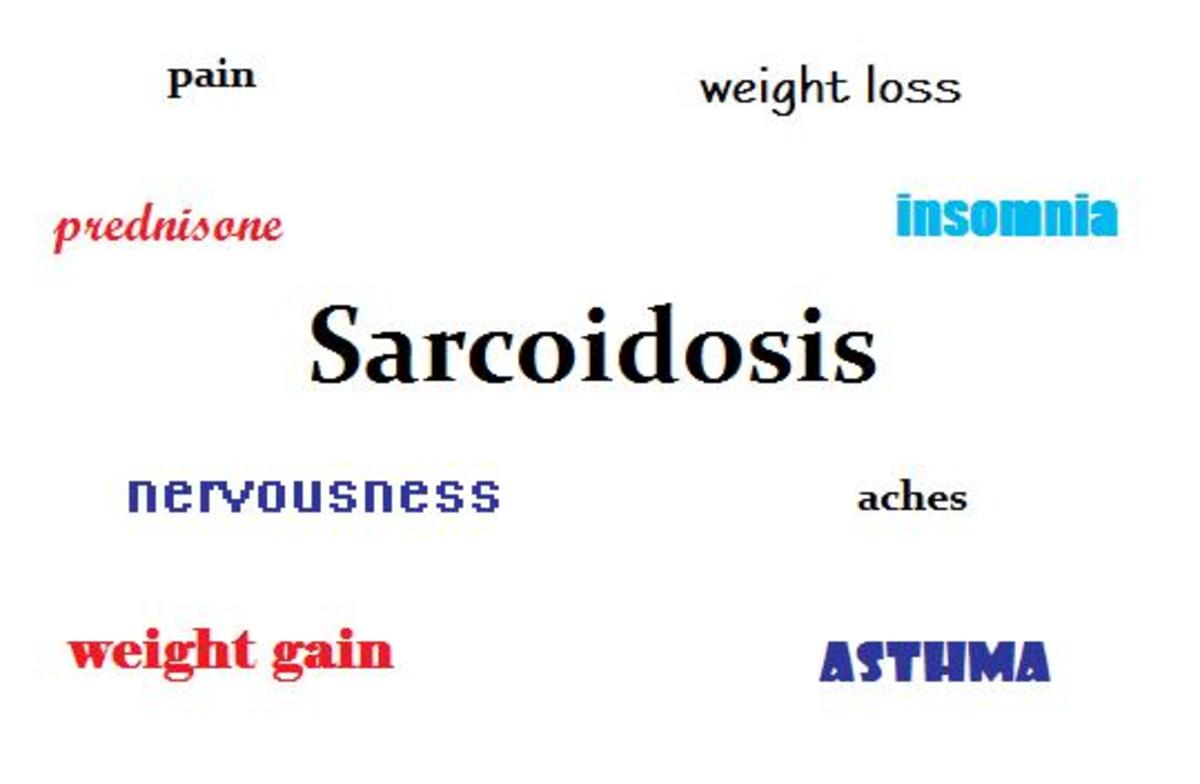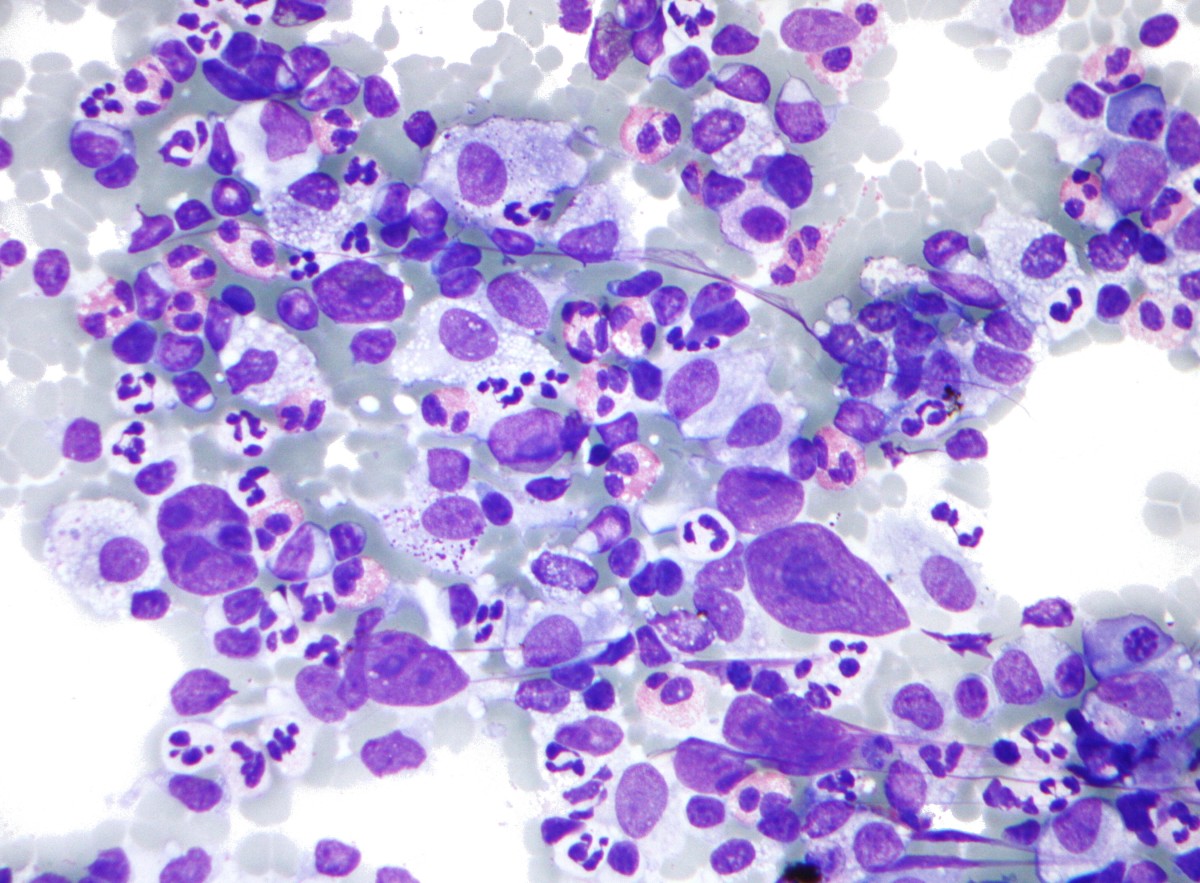What Is Cushing's Disease?
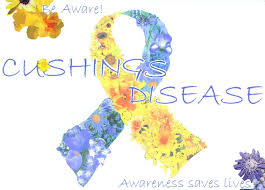
Cushing's disease is a disease of the endocrine system where the anterior pituitary gland releases a large amount of adrenocorticotropic hormones (ACTH). It is caused by an overdevelopment of the pituitary gland.
What are adrenocorticotropic hormones (ACTH).?
Adrenocorticotropic hormones (ACTH) are hormones secreted by the anterior pituitary gland as a response to stress or other body stimuli.
My sister-in-law had Cushing's disease but is now cured after undergoing first, sphenoidal surgery and then she had to finally undergo gamma knife surgery when the first procedure was not successful.
Functions of the adrenocorticotropic hormone
1. The adrenocorticotropic hormone initiates the release of glucocorticoid steroid hormones from the cells of the adrenal cortex.
2. It initiates the secretion of steroid hormones in two ways: by slower long term action and by rapid short term action.
The adrenocorticosteroid hormone sends signals to the zona farciculata, an area in the adrenal glands to release glucocorticoid steroid hormones. The zona faciculata is the part of the adrenal cortex that is responsible for the production of cortisol, the hormone that regulates glucose metabolism especially in stressful situations.
Glucocorticosteroids are a type of steroid hormones which can be found in all vertebrates.
Cause of Cushing's disease
Cushing's disease is caused by a benign tumor present in the pituitary gland or it could also be caused by an excessive secretion of the corticotropic-releasing hormones.
In the case of my sister-in-law, the cause of her disease is the presence of a benign tumor in her pituitary gland.
Signs and symptoms of Cushing's disease
The symptoms of Cushing's Disease are the same as those of Cushing's Syndrome as both diseases are characterized by having excessive amounts of cortisol, a steroid hormone which was formerly called hydrocortisone.
Cortisol is produced by the adrenal glands particularly in an area called zona fasciculata, one of three layers that make up the adrenal cortex and released by the hypothalamus which is an important part of the human brain.
The common obvious symptoms manifested by my sis-in-law were:
Red face
Round face
Gain in weight
High blood pressure
Fats in the nape
Fatigue
Irrregular menstrual cycle
Short memory span
Easily irritated
Poor focus and concentration
Cushing's disease patients may also experience these less common symptoms:
depression
severe acne
diabetes
insomnia
weakened bones
swollen feet and legs
weakness of the hips and shoulders
hair loss
chronic infection
thinning of the skin
stretch marks
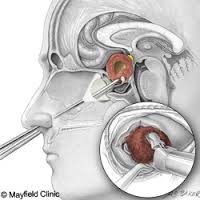
Treatment of Cushing's disease - Transphenoidal surgery
Treatment of Cushing's disease usually involves what is called transphenoidal surgery where the affected body organ is accessed through the nostril or through an incision made under the upper lip. Complications that can happen during the surgery are bleeding, response to anesthesia, and infection.
In December 2013, my sister-in-law underwent a transphenoidal surgery however in the middle of the procedure there was bleeding in her nose area and the doctor decided to stop the surgery.
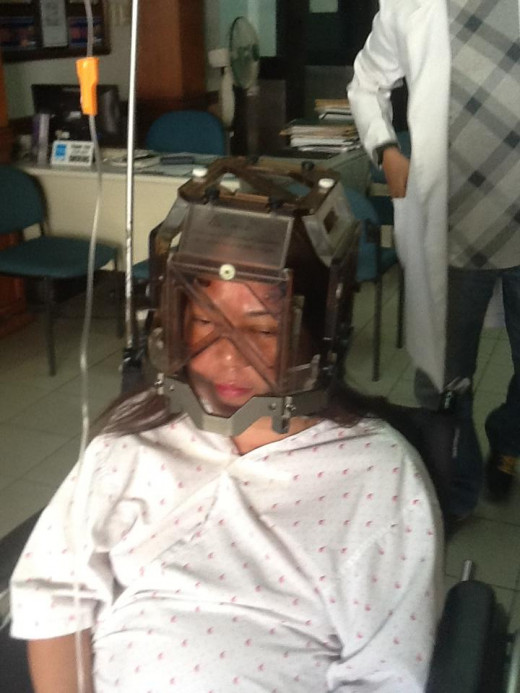
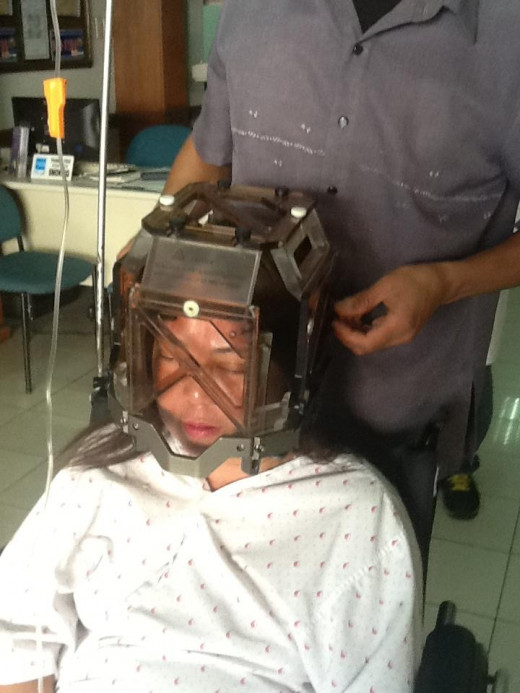
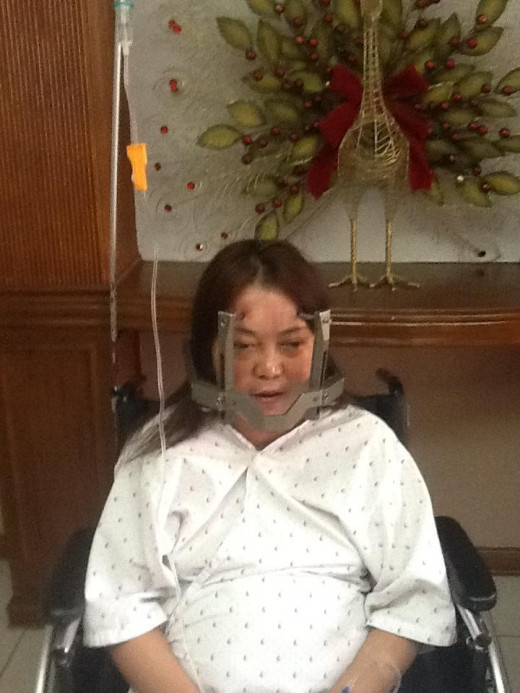
Gamma knife radiosurgery - why does it have to be performed?
Gamma knife radiosurgery has to be performed in the following situations:
1) when a tumor has grown in that part of the body that is difficult to reach.
2) when a person is not healthy to undergo a standard brain surgery.
3) when the patient prefers to undergo a non-surgical procedure.
What does gamma knife radiosurgery treat?
Gamma knife radiosurgery is done to treat the following abnormalities:
1) Tumor in the brain
An article published in the New England Journal of medicine in March 1979 reported that there has been no successful treatment yet made of the disease, so far.
The article further reported that bilateral total adrenalectomy can cause Nelson's syndrome and worse can cause death. It also requires hormonal replacement therapy.
Cobalt treatment through pituitary irradiation found to be an effective treatment in children is usually not effective when applied to adults.
What is usually recommended is pituitary irradiation by proton but doctors have found this to be dangerous.
Therapy using bromocriptine, reserpine and antiserotonin drugs has been found to be ineffective in treating the disease.
According to an article in the American Journal of Medicine published in December 2005:
"Surgical resection of tumor is the optimal treatment for all forms of Cushing’s syndrome; bilateral adrenalectomy, medical treatment, or radiotherapy are sought in inoperable or recurrent cases. The medical treatment of choice is ketoconazole. The prognosis is better for Cushing’s disease and benign adrenal causes of Cushing’s syndrome than adrenocortical cancer and malignant ACTH-producing tumors."
© 2014 Zee Formadero


